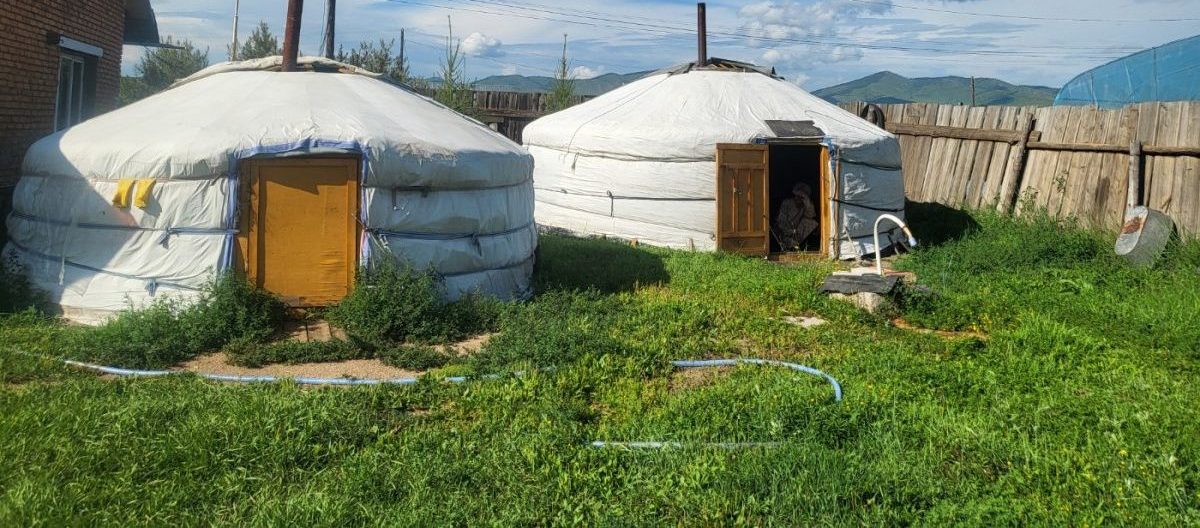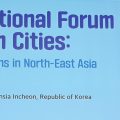Exploring Mongolia: ICLEI’s Mission to Advance Urban Sustainability and Collaboration

From July 28th to August 3rd, the ICLEI East Asia Secretariat visited three cities in Mongolia: Ulaanbaatar, Darkhan, and Erdenet to discuss potential collaborations on sustainable development, including sustainable agriculture, redevelopment of the Ger area, sustainable transportation, and heating. During the visit, ICLEI delegates engaged with international agency partners and participated in the 6th Northeast Asia Mayors Forum.

Jargalant SOM region, Orkhon Province, Mongolia (Source: ICLEI Secretariat of East Asia)
Darkhan, second largest city of Mongolia, is seeking for sustainable transition
Darkhan City is the capital of Darkhan-Uul Province and the second largest city in Mongolia after Ulaanbaatar. Established in the late 1960s as a major industrial and agricultural center, it serves as a key development region in Mongolia.
Darkhan City is one of the newest members of the ICLEI network. On July 29, delegates from ICLEI visited Darkhan City and met with Mr. Javkhlan B., the Deputy Governor of Darkhan-Uul Province. The city has made sustainable development a top priority and is keen to become a sustainable city. ICLEI delegates and Darkhan officials discussed plans for future collaboration aimed at making Darkhan City a global model for sustainable agriculture and urban transition. They aim to achieve this through ICLEI’s integrated approach and expertise. In addition, ICLEI delegates conducted a site visit to the Ger Area, the traditional Mongolian dwelling, to address concerns related to the redevelopment of Darkhan City.

Delegation of ICLEI presenting membership certificates to the City of Darkhan

Javkhlan B. (right), Deputy Governor of Darkhan-Uul Province, presenting the mascot to ICLEI

ICLEI introduces ICLEI’s work to officials from the government of Darhan-Uul province, and the two sides discuss the direction of future cooperation.

ICLEI visited the GER Reconstruction Areas
Erdenet, Mongolia’s mining hub, looks for green development plans
Erdenet City is Mongolia’s third largest city. Its main attributes include a robust mining sector and the highest population density in the country. The city is currently focusing on enhancing its sustainability.
On the first day when ICLEI delegates arrived in Mongolia, they met with Mr. Bat-Erdenet, a member of the State Great Hural (Parliament) of Mongolia. He described Erdenet as a burgeoning city with promising prospects, yet highlighted several pressing issues including pollution, land degradation, water scarcity, and a notable absence of green spaces. His recommendation was to pursue the implementation of Nature-based Solutions (NbS) to address these challenges.
Subsequently, ICLEI delegates discussed short-term green development plans with Mr. M. Tumenjargal, Governor of Orkhon Aimag. Recognizing the city’s regional characteristics, the city government has set reconstruction projects as a primary goal. This year, Erdenet City launched a regional development policy aimed at transforming the city into an industrial region that is nature-friendly, climate-resilient, and smartly developed.. ICLEI provided suggestions on capacity building and establishing a baseline assessment that considers environmental and nature-related aspects.
Additionally, ICLEI East Asia Secretariat met with government officials from Jargalant SOM, a district of Orkhon Province known for its rich agricultural background, to discuss further sustainable development initiatives.

ICLEI meets with Member of the State Great Hural (Parliament) of Mongolia Bat-Erdenet (second from left)

ICLEI presented a membership certificate to M. Tumenjargal (right), Governor of Orkhon Aimag.

ICLEI and Officials of Orkhon Province and Erdent Municipality Communicate on Partnerships

ICLEI visited the government office of Jargalant SOM and held talks on the direction of potential cooperation between the two organizations.
Collaborative Governance: NEAMF Promotes Public-Private Solutions for Urban Challenges
ICLEI East Asia delegation was invited to attend the 6th Northeast Asian Mayor’s Forum (NEAMF) by Ulaanbaatar City, a 10-year long-standing ICLEI member since 2014. Through the NEAMF platform, cities in the Northeast Asia region have committed to sharing ideas and advancing collaboration on addressing the diverse challenges brought about by rapid urbanization, such as urban planning, increasing urban populations, waste management, and good governance etc,. This year’s theme focused on Sustainable Development in Northeast Asian Cities: Promoting and Leveraging Public-Private Partnerships (PPPs), with attendees from 10 cities in 5 countries. Mr. Shu Zhu, Regional Director of the ICLEI East Asia Secretariat gave a presentation on “Promoting Sustainable Development through Local Actions”.
The ICLEI delegation respectively had meetings with Mr. Nyambaatar Khishgee, Governor of the Capital city and Mayor of Ulaanbaatar, and Ms. Khosbayar Luulai, Deputy Governor of Social Sector, Green Development, and Air and Environmental of Ulaanbaatar city. ICLEI will further support the long-standing member, and make joint efforts with Ulaanbaatar city in addressing urban sustainability issues including waste management, sustainable mobility, and urban resilience etc., through peer-to-peer learning, capacity building and technical support etc.

Group photo of the 6th Northeast Asia Mayors’ Forum

Keynote speech by Zhu Shu, Director of ICLEI East Asia Secretariat and China Representative

ICLEI delegation meets with Mayor Nyambaatar Khishgee of Ulaanbaatar city

Meeting with Deputy Mayor Khosbayar Luulai of Ulaanbaatar
Working together with International organizations in Mongolia to achieve development goals
Throughout the trip, the ICLEI East Asia delegation engaged in productive meetings with a number of esteemed international organizations, including UNDP, UN-Habitat, Hanns Seidel Foundation, the Global Green Growth Institute (GGGI), GIZ, and the European Union Delegation (EUD). The primary focus of these meetings was to explore opportunities for collaboration in areas such as flood resilience, heating issues, redevelopment of Ger areas, sustainable agriculture, renewable energy transition, and technical training for local experts. The ICLEI East Asia Secretariat is looking forward to establishing working relationships with these international organizations as potential partners. ICLEI’s aim is to leverage their expertise and provide consultancy support to effectively facilitate the transition towards sustainable and green urban development in Mongolian cities through mutually beneficial international partnerships.

ICLEI Delegation Exchanges Cooperation Opportunities with the United Nations Development Program (UNDP) Mongolia

Cooperation exchange between the delegation of ICLEI and the United Nations Human Settlements Programme (UN-Habitat)

Cooperation and exchange of information between ICLEI and the Deutsche Gesellschaft für Internationale Zusammenarbeit (GIZ)

ICLEI has a collaborative exchange with the Global Green Growth Institute (GGGI).


